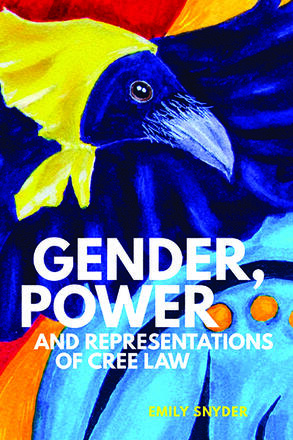
This powerful book investigates the relationship between the oversimplification of gender in representations of Cree law and its effect on perceptions of Indigenous women as legal agents and citizens.
Description
Drawing on the insights of Indigenous feminist legal theory, Emily Snyder examines representations of Cree law and gender in books, videos, graphic novels, educational websites, online lectures, and a video game. Although these resources promote the revitalization of Cree law and the principle of miyo-wîcêhtowin (good relations), Snyder argues that they do not capture the complexities of gendered power relations. The majority of these resources either erase women’s legal authority by not mentioning them, or they diminish their agency by portraying Cree laws and gender roles in inflexible, aesthetically pleasing ways that overlook power imbalances and other forms of oppression.